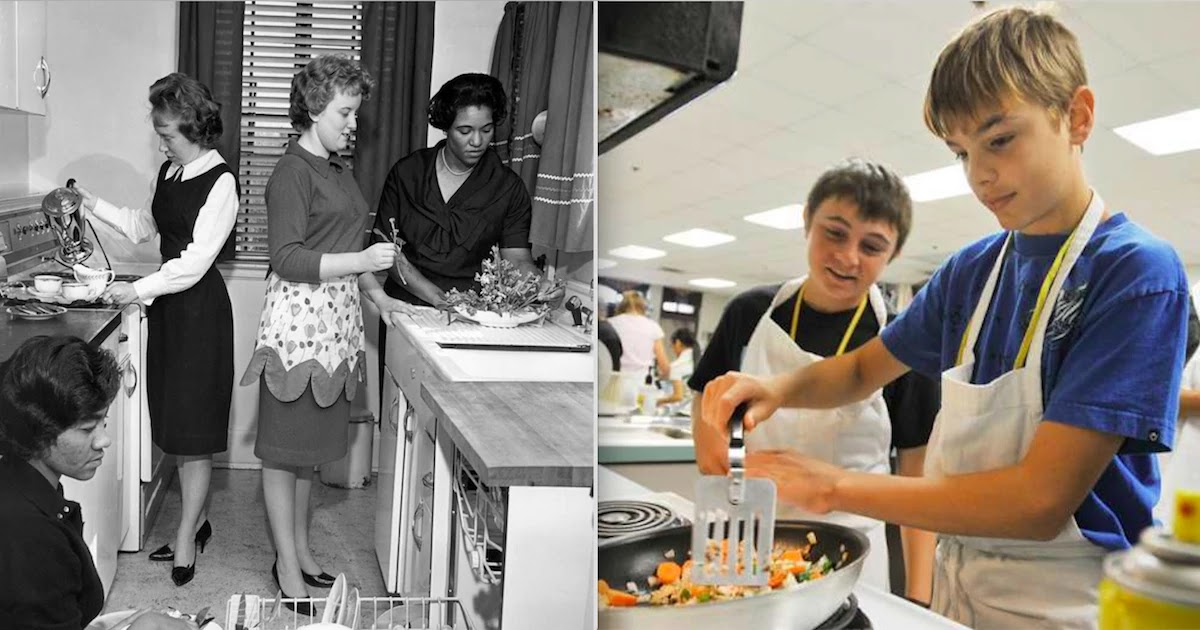
At one time home economics was a subject taught at all high schools. While having a rather sexist component, it was often taught only to girls, its function was to teach young people how to carry out basic tasks that they would need for their future independent lives. These included how to prepare basic meals, how to budget, time management, how to carry out basic home repairs and fill out taxes. Unfortunately, many schools have now long removed home economics from their curriculum, now many educators, pupils and parents are asking for it to brought back.
Those calling for the return of home economics state that the sole focus in schools on STEM subjects, gaining academic qualifications in order to reach university, and neglecting any more practical subjects has left young people without the ability to look after themselves properly. According to one study,those that do not have these skills tend to eat worse diets, eat more fast-food (because they can’t cook themselves), and be less able to manage their finances.
They are also calling for these home economics classes to be taught to both boys and girls, sadly it was previously the case that these home economics classes were taught only to girls, as it was believed that this should be their role in the family unit.
In effect we have a generation of children who have great academic knowledge and skills in science, mathematics, languages etc. but can’t carry out basic tasks that are super-valuable to their day-to-day lives.
Marti Harvey, a lecturer at the University of Texas at Arlington, who works with students who have left high school made this point on the basis of interactions with her pupils:
“It’s a failing of our educational system that students don’t leave high school with this basic understanding, among other things. That’s why we need to bring back the old home economics class … call it ‘Skills for Life’ and make it mandatory in high schools. Teach basic economics along with budgeting, comparison shopping, basic cooking skills, and time management. Give them a better start in real life than they get now.”
To combat this, Marti teaches a week ‘Math Lab’ every year to her students that demonstrates skills such as understanding credit cards, pay-checks, basic maths and budgeting skills and how to fill out tax returns. She added:
“We tend to be a society of extremes. Right now, we’re trying to send people into STEM kind of careers. However, I think administrators and legislators also need to think about people coming out of high school or even college without the ability to manage their money and to know how to lead a productive life.”
What it is important to realise is that teaching a little bit of home economics doesn’t take away from the learning of other subjects. An hour or two every month hardly makes a student less likely to be good at Maths, English or other subjects. Nor should the class be seen as ‘easy’ compared to others, as they are developing those skills that will make life a lot easier and less stressful for young people as they become fully-fledged adults.












COMMENTS